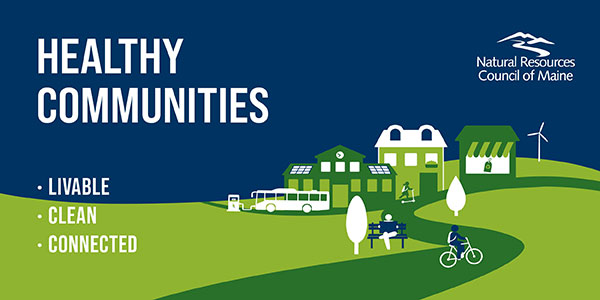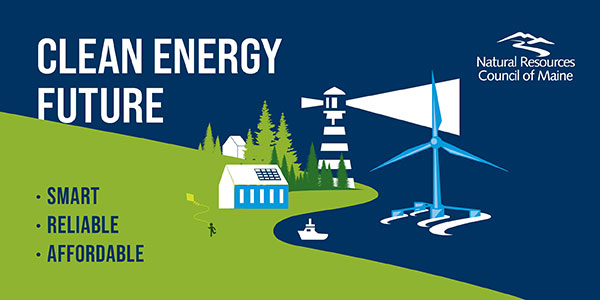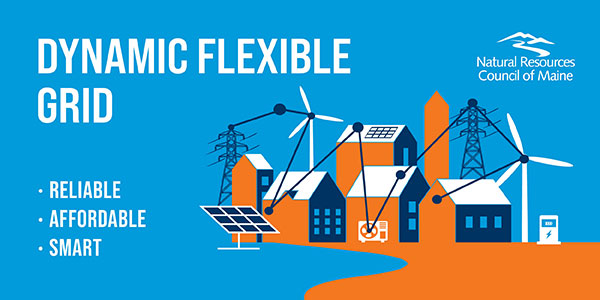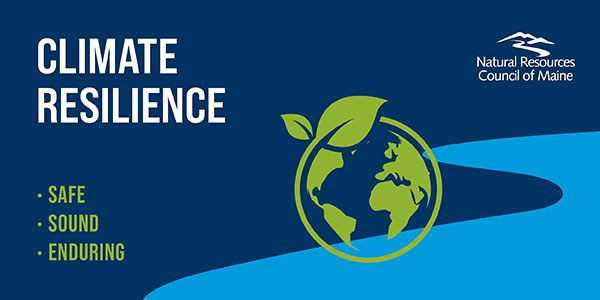The impacts of climate change in Maine are already being felt by our state's people and local businesses. Coastal towns face rising sea levels, and our inland lakes are warming. Winters are shortening, and extreme weather is forcing farmers to adapt. Ticks and other invasive species are becoming more prevalent.
The region’s dependence on fossil fuels for heating and electricity is not just fueling global warming in Maine, it’s resulting in higher energy bills and less reliability.
Acting on Climate Change in Maine
The good news is Maine is well on its way to building a clean energy future that benefits residents across the state. Bipartisan pollution reduction goals and a statewide Climate Action Plan called Maine Won’t Wait provide a clear framework for action. As a result, record amounts of heat pumps and solar panels have been installed, and more people are driving electric vehicles than ever before.
NRCM’s climate and clean energy experts work together with Mainers across the state to identify solutions that provide the maximum benefit to residents, cities, and towns.
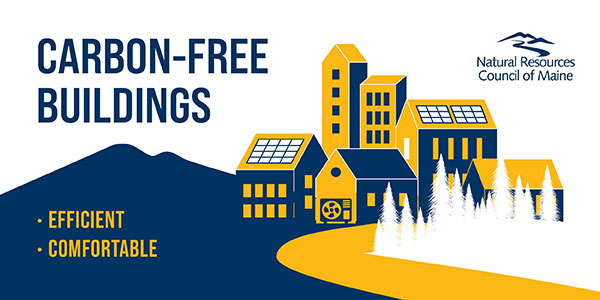
Electrifying our Homes and Businesses
Replacing expensive home heating oil with super-efficient heat pumps, weatherizing drafty homes, and investing in other technologies like induction stoves or heat-pump hot water heaters will help Mainers save money, reduce pollution, and make our homes healthier and more comfortable.
Healthy Transportation Options
The majority of Maine’s greenhouse gas emissions come from pollution emitted by cars and trucks. By transitioning to electric cars and trucks, while giving people the opportunity to drive less with better public transit and safer walking and biking paths, we can build healthier communities, lower fuel costs, and reduce Maine’s largest contribution to climate change.
Affordable, Reliable Clean Energy
The future will be powered by clean, affordable energy produced here in Maine. Solar energy and offshore wind can provide our state and region with the large amount of renewable energy we will need to power the future. Reducing fossil fuel power generation will reduce price volatility on people’s electricity bills. Developing these energy sources here in Maine will support local businesses and create more good-paying jobs for Maine people.
Electric Grid of the Future
In order to bring clean energy technologies to more homes and businesses across Maine, we’ll need to reimagine how we plan, build, and operate our electric grid.
A new integrated grid planning law passed in 2022 sets us on a more positive path for designing the electric grid of the future by ensuring that each investment in the grid is driving us as quickly and equitably as possible toward a clean energy transition.
Climate Resilience and Natural Climate Solutions
Unfortunately, because of years of delay and denial, communities are already feeling the impacts of climate change and global warming pollution in Maine, from increased flooding to dangerously hot days. Helping our cities and towns prepare for the impacts of climate change is a key priority to make us more resilient.
Forests, wetlands, and other natural systems will sequester carbon and provide other important benefits to strengthen our communities in the face of extreme weather and other impacts.

"NRCM is working on climate change. As a decade-long homeowner of solar thermal and PV arrays, I share NRCM’s commitment to renewable energy as one of many important steps to addressing global warming."
- Maine meteorologist Paul Cousins, 20-plus-year member of NRCM








